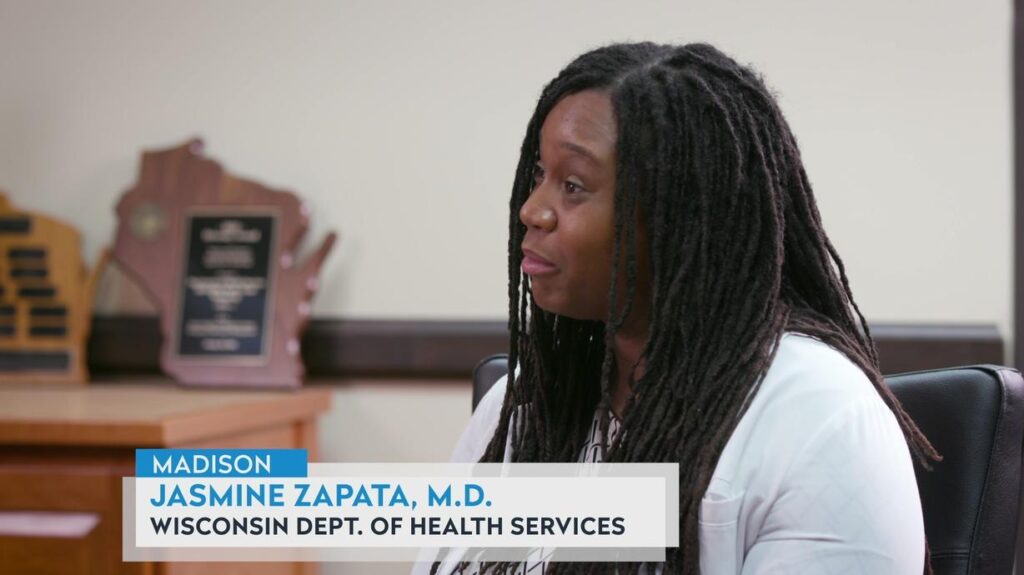Aditi Debnath:
The COVID-19 pandemic has taken a toll on the mental health of millions of Americans, infected or not. There was fear, there was sadness, and there was anger. How does that psychological harm continue to affect people today?
Dr. Jasmine Zapata:
I will never forget the first time I had to face the same fear as a healthcare worker. I contracted the coronavirus in November 2020, in the early stages of the pandemic, even before there was a vaccine. It was a very scary time. There was news that someone had died. I had a huge fear. And myself, and my husband, and one of my children had it as well. And think, what if we don't survive? What should I do if it doesn't work? What if he doesn't come in two weeks? It was scary. And I am still healing and recovering from that traumatic period. I also can't forget the first time I tested positive for COVID-19 and had to go into a hospital room. And I remember putting on my hazmat suit and standing outside the door for a minute or two before going in, knowing that by going in there I was going to be exposing myself. And it was very, very scary. This is just one example of the mental health toll it has taken on health care workers, including myself, as well as other frontline health care workers across the country. So one can only imagine the mental health burden this has placed on families and communities. And the ripple effects are certainly still visible today. In addition to the mental health effects of contracting COVID-19 or having a loved one contracting COVID-19, we are currently experiencing the impact of COVID-19 on social, emotional, and economic perspectives. The various knock-on effects the virus has had on our communities are also considered. Some people lost their jobs and others were forced to leave their homes. The many social impacts it had undoubtedly continue to have. In fact, some say we are now in a new pandemic: a mental health pandemic. We are definitely facing a youth mental health crisis. Rates of self-harm are increasing. Our state is experiencing increasing rates of suicidal ideation and other mental health concerns among all age groups. And it is extremely important to continue to raise awareness about this very issue.


